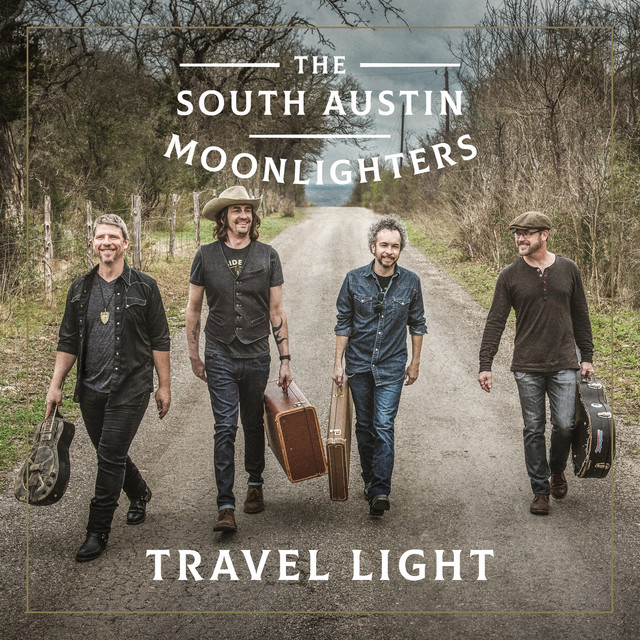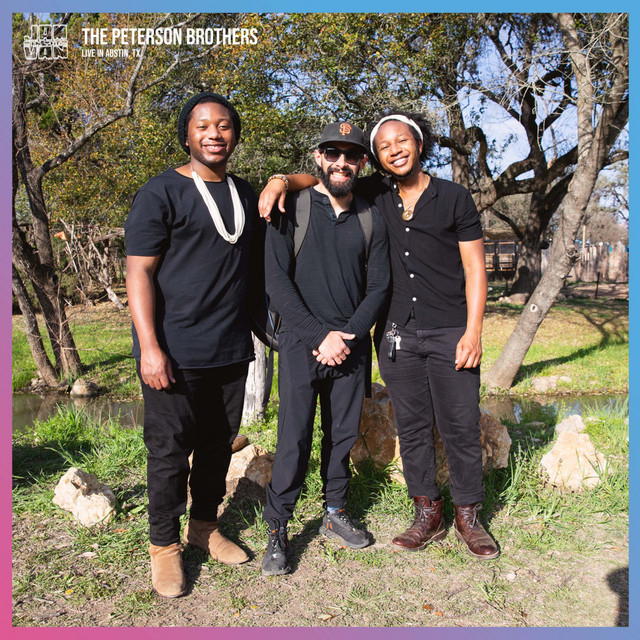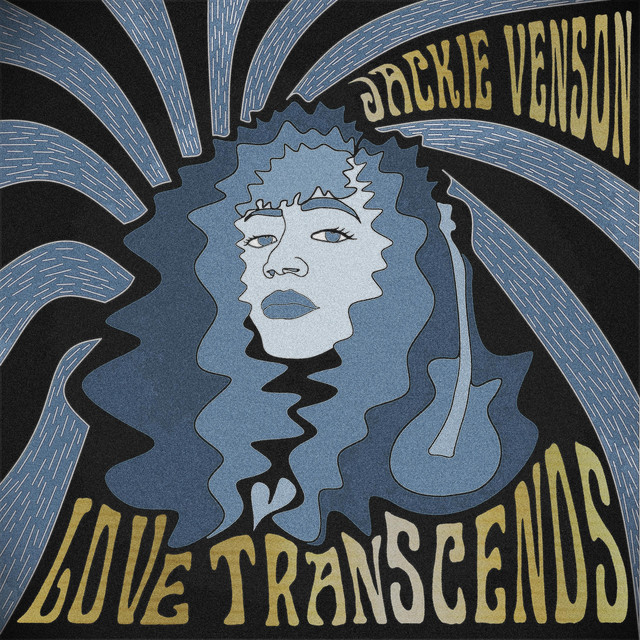Machine Gun Kelly
“Machine Gun Kelly” by The South Austin Moonlighters, released in 2019, is a track that delves into folk-rock storytelling with a touch of modern Americana. The instrumentation features a blend of acoustic and electric guitars, creating a warm yet gritty atmosphere. The song follows a steady mid-tempo rhythm, driven by a solid drum beat that anchors the track. The bass guitar underpins the harmonic structure, providing a steady foundational groove. Vocally, the lead singer delivers the narrative with a laid-back, melodic approach, emphasizing the lyrical content’s storytelling aspect. Harmonies are layered subtly, enhancing the vocal texture without overwhelming the lead. The production is clean, allowing each instrument to stand out while maintaining an organic, live-performance feel. Overall, the song captures the essence of a classic outlaw narrative, both musically and lyrically, wrapped in a modern production that’s easy on the ears.
Guitar Man
“Guitar Man” by Jimmie Vaughan in 2019 is a straightforward blues track that highlights Vaughan’s seasoned guitar skills. The song structure is traditional, relying heavily on the 12-bar blues progression, which creates a familiar and predictable sonic landscape perfect for blues enthusiasts. Vaughan’s guitar work is clean and expressive, yet restrained, allowing his technical proficiency and emotive playing to shine without overwhelming the listener. The tone of the guitar is warm, with just the right amount of grit, complementing his laid-back vocal delivery. The rhythm section provides a steady groove, keeping things tight and providing a solid foundation for Vaughan’s guitar leads. His phrasing is conversational, almost as if he’s engaging in a dialogue with the audience through his instrument. Overall, “Guitar Man” encapsulates Vaughan’s mastery of blues guitar, offering a performance that is both understated and compelling.
Roll the Bones
“Roll the Bones” by Shakey Graves is an intriguing exploration of minimalist yet impactful folk soundscapes. The song is built around a signature gritty acoustic guitar riff that carries a lo-fi charm, setting a haunting, rustic tone. Graves’ raw and expressive vocal delivery adds a layer of emotional grit, perfectly complementing the sparse instrumentation. The lyrics are introspective and storytelling in nature, evoking a sense of wanderlust and existential reflection. Structurally, the song maintains a steady rhythm, creating a hypnotic groove that draws listeners in. Percussive elements are understated yet effective, enhancing the song’s organic feel. Overall, “Roll the Bones” showcases Graves’ ability to blend traditional folk elements with modern, indie sensibilities, crafting a sound that is both timeless and refreshingly raw.
Love Is Alive
“Love Is Alive” by Eric Tessmer, released in 2016, is a blues-rock track that emanates raw energy and emotion. The song kicks off with an assertive guitar riff, establishing a gritty, soulful foundation typical of Texas blues. Tessmer’s guitar work is front and center throughout, characterized by expressive bends and robust sustain that highlight his technical skill and passion. The rhythm section provides a solid backdrop, with the bass delivering a steady groove that supports the dynamic guitar lines. Drums are punchy and straightforward, helping to drive the song with a consistent backbeat, yet allowing the guitar to shine. Vocally, Tessmer conveys the lyrics with earnest intensity, his raw voice meshing seamlessly with the instrumental backdrop. The production is clean yet retains a live, unpolished feel, effectively capturing the essence of a high-energy jam. Overall, “Love Is Alive” embodies the spirit of traditional blues-rock, anchored by Tessmer’s compelling guitar mastery and heartfelt delivery.
I Gotta Go
“I Gotta Go” by The Peterson Brothers, released in 2015, is a blues-rock track that highlights the duo’s commitment to blending traditional blues with a modern twist. The song begins with a strong, rhythmic guitar riff that establishes a driving groove, reminiscent of classic blues influences but with a contemporary edge. This riff acts as a backbone throughout the track, maintaining an energetic and relentless pace.
The Peterson Brothers showcase their instrumental prowess, with intricate guitar solos that speak to their technical skills and deep understanding of the genre. These solos are both expressive and precise, weaving seamlessly into the song’s structure. The bass and drums lay down a solid rhythmic foundation, their locked-in grooves providing a steady, propulsive force that keeps the listener engaged.
Vocally, the song delivers a raw and heartfelt performance. The lyrics express themes of urgency and movement, with a directness that allows the emotion to cut through the instrumental layers. The vocal delivery adds a layer of sincerity and passion, effectively complementing the energetic instrumentation.
Overall, “I Gotta Go” captures a lively and vibrant sound, bridging old-school blues with modern flair, which showcases The Peterson Brothers’ knack for innovation within the genre while honoring its roots.
Don’t Call Me Baby
“Don’t Call Me Baby” by Tameca Jones in 2015 is a powerful blend of soul and blues, characterized by a rich, emotive vocal performance. The song opens with a steady, soulful groove that serves as a perfect backdrop for Jones’s commanding voice. Her vocal delivery is both assertive and smooth, employing a wide range of dynamics and expressive techniques. The instrumentation is straightforward yet effective, with a prominent bass line and crisp percussion that drive the rhythm forward. The guitar work is subtly intricate, providing a melodic counterpoint to the vocals. Harmonic progressions are traditional yet satisfying, allowing Jones’s voice to shine at the forefront. Overall, the production quality is polished, balancing the distinct elements to create a cohesive sound. The song captures the emotional intensity and storytelling typical of classic soul music while maintaining a contemporary edge.
Always Free
Jackie Venson’s “Always Free,” released in 2020, encapsulates a refreshing blend of blues, rock, and soul elements, delivering a dynamic sonic experience. The track is centered around Venson’s signature guitar work, featuring clean, expressive riffs that showcase her technical prowess and emotive playing style. The song opens with a punchy groove set by the rhythm section, establishing a solid foundation throughout. Venson’s vocals are powerful yet smooth, carrying a sense of liberation that aligns with the song’s theme. Her soulful articulation adds depth, creating an engaging interplay with the instrumentation. The chorus introduces a memorable hook, both catchy and resonant, anchoring the track’s structure. Lyrically, “Always Free” reflects a message of empowerment and independence, embodied through fervent vocal delivery and vibrant musical textures. The production maintains clarity, allowing each instrument space while ensuring a cohesive mix. Overall, the arrangement balances energy and subtlety, resulting in a compelling performance that highlights Venson’s multifaceted artistry.






